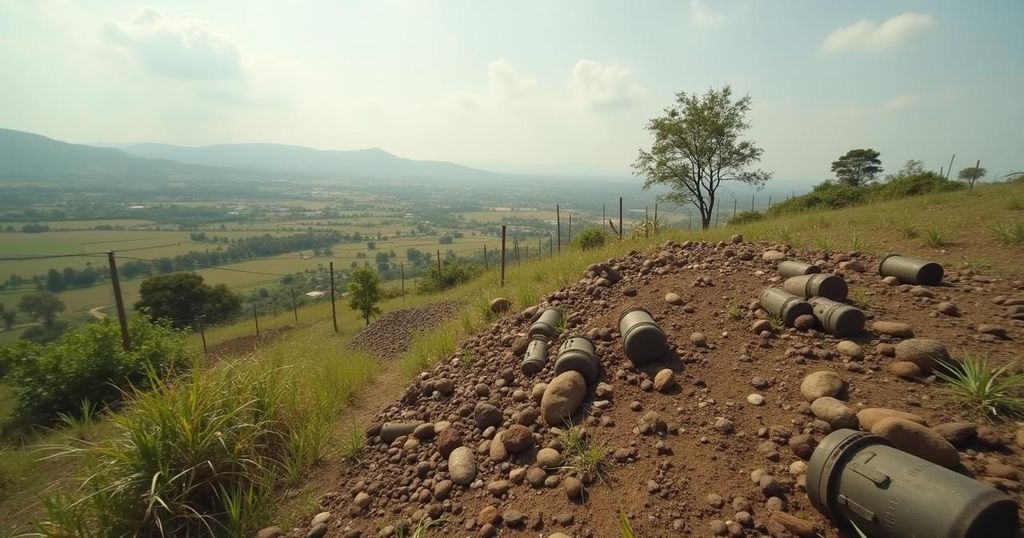Colombia and Angola remain heavily impacted by landmines resulting from prolonged conflicts, affecting human life and economic development. Despite efforts to de-mine, challenges persist due to funding shortages and the scale of contamination. International support is needed to address these issues, with both nations looking to overcome their legacies of violence and destruction, emphasizing the critical need for updated arms control measures to mitigate future risks.
In Colombia, the remnants of conflict resonate sharply in the form of landmines, underscoring a persistent and perilous legacy in a country greatly affected by over six decades of internal strife involving insurgent groups such as the Revolutionary Armed Forces of Colombia (FARC). The repercussions of this violent history are profoundly felt in rural regions where thousands of mines were indiscriminately buried, transforming communities into hazardous sites devoid of safety. Despite ongoing de-mining efforts supported by the government and various international organizations, the scars of this legacy remain, with countless lives affected by injury or death due to landmine explosions. Similarly, Angola faces a daunting challenge, as it is recognized as one of the most heavily mined nations globally, burdened with more than 73 million square meters of contaminated land. The origins of landmine proliferation in Angola trace back to its struggle for independence from Portugal and the prolonged civil war that ensued, which has left more than 1,100 known or suspected minefields disrupting both human life and economic development. The agricultural potency and overall livelihoods of communities in Angola continue to be jeopardized by the presence of landmines, underscoring parallels with the situation in Colombia. Both nations encounter significant hurdles in their de-mining initiatives, facing funding shortages and the expansive nature of the problem. Despite international agreements such as the Ottawa Treaty—a treaty aimed at prohibiting the use of anti-personnel landmines—both countries find themselves still grappling with the remnants of conflict. In Angola, for instance, international funding for demining efforts experienced a dramatic decline of over 80% between 2005 and 2017, pushing the deadline for full demining from an initial target of December 2013 to the now extended deadline of 2028. Columbia’s journey towards a landmine-free nation mirrors these struggles, aligning both nations in their fight against these remnants of conflict. The impact of landmines extends beyond personal safety; it deeply affects economic progress. Rural development in Colombia and Angola is hampered as families hesitate to return to their homes and cultivate their land, further entrenching poverty and instability. The arduous and costly nature of the de-mining process compels both nations to rely on international assistance. Without sustained efforts from the global community, the aspiration of having landmine-free territories remains a vision far from realization. Moreover, the inadequacies in arms control highlight the critical necessity for stricter regulations and enhanced international cooperation to mitigate the destructive legacy of landmines for future generations.
The topic examines the significant issues of landmine contamination in Colombia and Angola, two countries profoundly affected by lengthy conflicts that have left a legacy of destruction and danger. It discusses the roots of landmine proliferation, the ongoing struggles with de-mining efforts, and the broader implications for human safety and economic development. Through the lens of these nations, the article underscores the essential need for international support and collaboration in addressing the humanitarian and developmental crises arising from landmines. Furthermore, it highlights the importance of stricter arms control to prevent future tragedies.
Landmines represent a persistent challenge for both Colombia and Angola as they navigate the remnants of their respective conflicts. The ongoing hazards posed by these weapons extend beyond immediate threats to individuals, severely stunting economic development and recovery efforts. Effective de-mining requires not only significant funding and resources but also sustained international cooperation and oversight. Without these measures, the goal of becoming landmine-free remains a distant hope, while the consequences of arms proliferation continue to haunt both nations and communities worldwide.
Original Source: punchng.com






